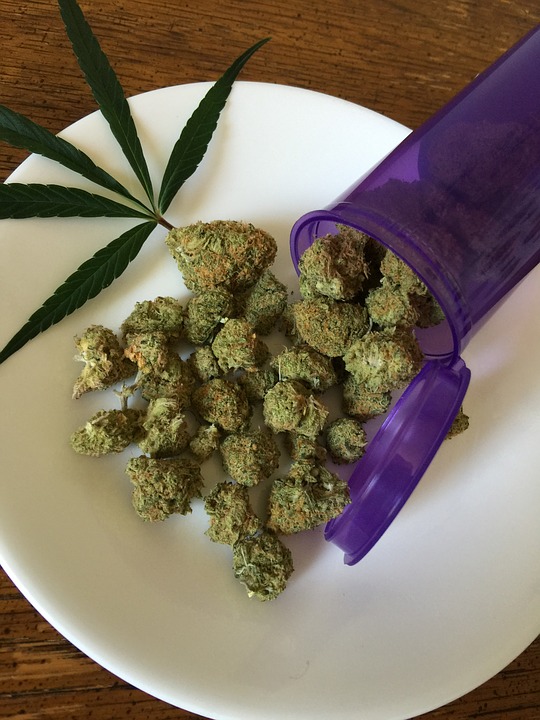There are a variety of reasons why more and more people each year are turning to medical marijuana to help relieve their ailments. One of the most common across the United States is sleep problems – chronic insomnia in many cases. An estimated 10-30% of Americans are affected with insomnia related symptoms at some point throughout their lives.
For a large quantity of the population who suffer from unruly nighttime restlessness, turning to alcohol is all too often their go-to move. For those fortunate enough to possess a medical marijuana card however, that can be a thing of the past. Whereas studies have shown that alcohol and a good night’s sleep do not mix, evidence suggests that not only is consuming medical marijuana beneficial in combating mild to severe insomnia, but is vastly superior to both alcohol and even a lot of prescription drugs on the market – which themselves can often house addictive qualities and negative side effects.
A common misconception is that having a nightcap right before bed will result in a better night’s sleep. A recent review across 27 studies found that alcohol does not improve sleep quality. While findings suggest that in some cases among healthy people, getting to sleep can occur more quickly after a drink, this is only a short-term effect; conversely reducing the time spent in the deep sleep phase, increasing the rapid eye movement (REM) sleep, which is much easier to wake up from. Furthermore, the more you drink before bed, the more pronounced these effects will be.
Medical marijuana and sleep

Medical marijuana has been scientifically proven to help users sleep.
If you have a medical marijuana card in California however, cannabis has been shown to greatly benefit the standard of living for those suffering from insomnia related problems. While smoking any kind of cannabis can provide therapeutic qualities, the chemical properties it inhabits can have a potent impact on many types of secondary insomnia (that caused by an underlying issue, such as anxiety or depression). It’s important to understand the differences in marijuana strains though, as some can inhibit sleep as equally as alcohol.
The most common strains come across by cannabis card holders will be THC and CBD; this is due to the advantages they offer to people suffering from a range of illnesses, from insomnia, to cancer and HIV. High levels of THC can be of a detriment to those with secondary insomnia, as it can actually increase the effects of anxiety and depression if relied on too heavily, while high levels of CBD will have little effect on insomnia at all. If these are indeed the strains you’re working with to help lull yourself to sleep, it’s best to stick to a relatively equal dose of both.

Alcohol does not actually help you sleep, while medical marijuana really can.
Alcohol and sleep
The medical director at The London Sleep Center in the UK has state that, “Alcohol may seem to be helping you to sleep, as it helps induce sleep, but overall it is more disruptive to sleep, particularly in the second half of the night”. He continues, “Alcohol also suppresses breathing and can precipitate sleep apnea” which is pausing breathing which happens throughout the night. This is effectively summarized by saying that the more a person drinks before bed, the more their sleep will be disrupted.
Even minimal alcohol consumption can interfere with the normal sleep process. Evidence found by Dr John Shneerson, head of the sleep center at Papworth Hospital in the UK, states that, “As the alcohol starts to wear off, your body can come out of a deep sleep and back into REM sleep […] that’s why you often wake up after just a few hours’ sleep when you’ve been drinking.” Further disturbances in sleep can come from simply needing the bathroom; as alcohol is a diuretic it isn’t just the liquid you’ve drunk that you’ll be losing either, as it encourages the body to lose extra fluid, which can in-turn comes with the adverse effect of making you dehydrated.
California medical marijuana card holders
For Californians, using your cannabis card is undoubtedly one of the best ways in which you can confront sleep problems head on. The most assured way to counter the effects of insomnia is to seek the indica strain of marijuana. The chemicals found within the indica strain are known to produce a physical ‘body high’, great for relaxation, and preferable over the more familiar THC or CBD. Synthetic cannabinoids such as nabilone are proven sleep aids too; reducing brain activity throughout the night, therefore resulting in far fewer dreams, helping those suffering from anxiety or post-traumatic stress disorder stay asleep.
For cannabis card holders who desire a drink before bed, a prominent benefit to a healthy sleep can come from pairing herbal nightcaps with natural remedies, such as chamomile tea (un-spiked of course). As with alcohol, relying heavily on marijuana to soothe oneself at bedtime can result in a reliance if used too often, so it’s important to take breaks in between long acquaintances, as not doing so will eventually result in worsened sleep.
Sleep problems in those who are lucky enough to obtain a medical marijuana card, can be a thing of the past if used properly. Assuming the suitable strains to fight the effects of insomnia are used, the advantages over alcohol are tremendous – greatly increasing deep and long-lasting sleep. Turning to a nightcap only offers temporary relief; so if you desire to treat those sleep issues efficiently and directly, medical marijuana is the way to go.
